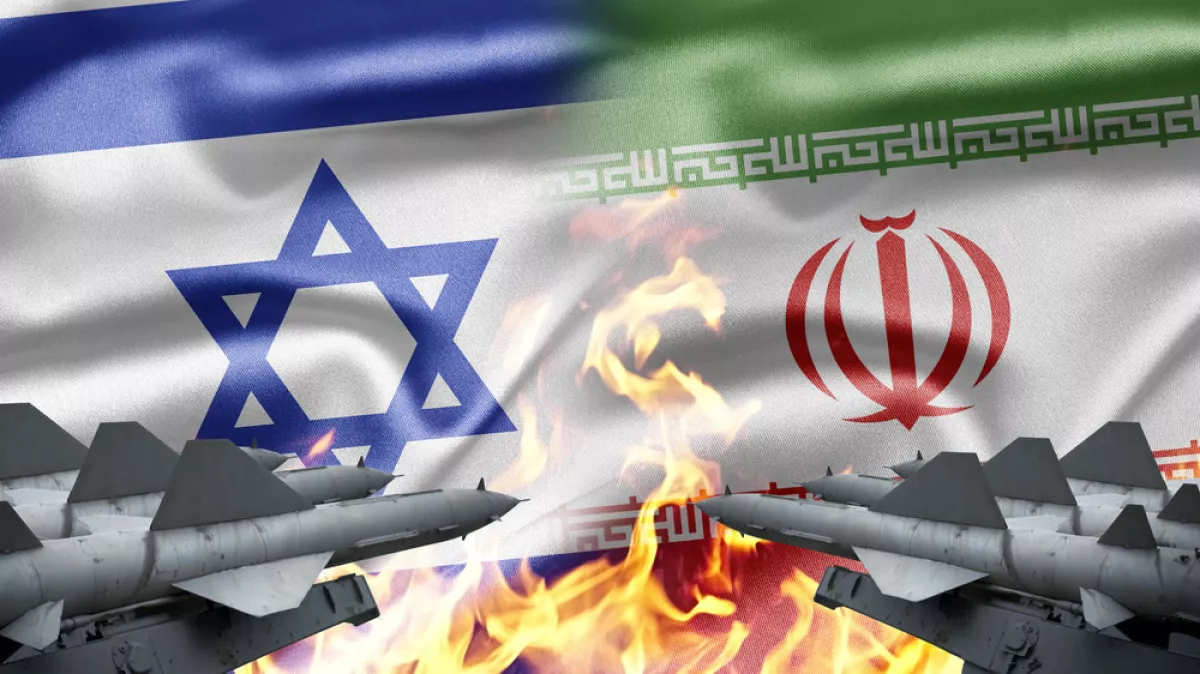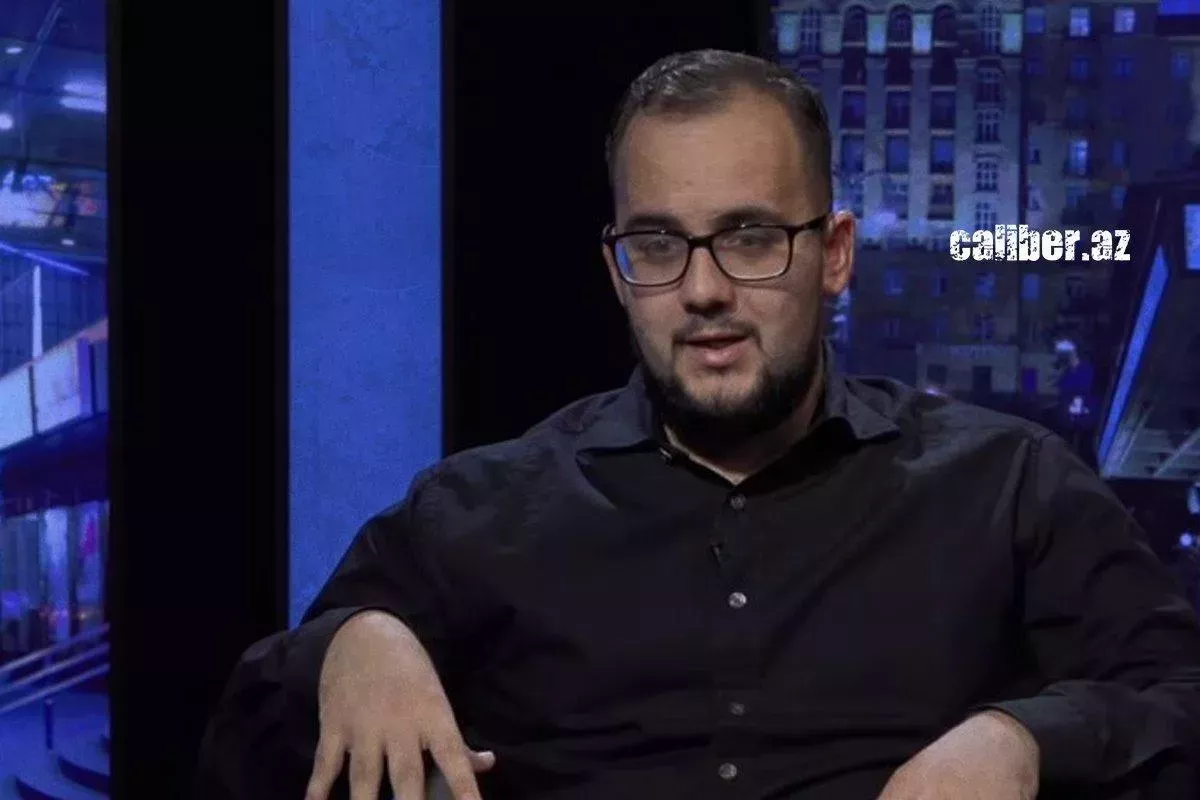US vs. Iran: Preventing a nuclear Armageddon Expert opinions on Caliber.Az
U.S. President-elect Donald Trump has not ruled out the possibility of war with Iran. He stated this in an interview with Time magazine. When asked about the likelihood of a conflict with Tehran, he paused and then said, “Anything can happen.” However, the politician did not specify what actions might be taken against Iran in the future.
At the same time, it became known that Trump’s team is not ruling out military strikes on Iran's nuclear facilities to prevent Tehran from developing nuclear weapons. This was reported by the American newspaper The Wall Street Journal (WSJ), citing sources. “President-elect Donald Trump is weighing options for stopping Iran from being able to build a nuclear weapon, including the possibility of preventive airstrikes,” the publication stated. It was noted that such a step could mark a departure from the longstanding policy of containing Tehran through diplomacy and sanctions.
According to WSJ, the option of a military strike on nuclear facilities is now being considered more seriously by some members of Trump’s transition team, in light of developments in Syria. Sources told the newspaper that the weakening of Iran’s regional position and “recent revelations of Tehran’s burgeoning nuclear work have turbocharged sensitive internal discussions.”
Israeli military officials now believe that their successful large-scale strikes on Syria have paved the way for potential attacks on Iran's nuclear facilities. This was reported by the Israeli Army Radio, Galei Tzahal. According to the report, various military entities, including the Israeli Defense Forces, are coordinating efforts between intelligence and defense agencies to present actionable strategies to the country's political leadership for addressing the Tehran threat.
Israeli assessments suggest that Syria's once-formidable air defense system has been rendered over 80% ineffective following Israeli Air Force operations, Galei Tzahal noted. Previously, Syria's air defenses posed a significant challenge to Israeli aircraft, but the situation has fundamentally shifted. The radio station highlighted that Syria’s airspace is now effectively open to Israeli operations, marking a critical change in the regional balance of power.

Former Israeli Defense Minister Yoav Gallant, in a recent interview with The Washington Post, revealed that Israeli airstrikes conducted on October 26, involving 120 fighter jets, have created a "a window to act against Iran."
These developments suggest that Israel has already established a secure air corridor for potential strikes on Iranian targets, similar to its operations in Gaza and Lebanon. Gallant added that such capabilities position Israel to effectively target Iranian facilities, paving the way for the current U.S. administration to explore coercive diplomacy over Iran’s nuclear ambitions.
The primary objective is clear: to deprive Iran of the ability to develop nuclear weapons. According to available reports, such an operation might involve coordinated efforts between the Israeli and U.S. armed forces. However, how feasible are these plans under the current circumstances? And how might Tehran respond, given its weakened and constrained position following the dismantling of its regional allies—the Assad regime in Syria and Hezbollah in Lebanon?
Foreign experts shared their insights on these pressing questions with Caliber.Az.
American analyst and publicist Samson Katzman confirmed that, in light of the defeats suffered by Iran’s proxies—Hamas in Gaza and Hezbollah in Lebanon—as well as the total collapse of Bashar al-Assad’s regime, a key ally of the ayatollahs in the Middle East, the future of Iran’s nuclear program is being actively discussed in political circles in both the U.S. and especially Israel.

"The Islamic Republic has suffered a crushing defeat, casting doubt on its role as a regional hegemon dictating its will to neighbors and major global players. The shortest path to reclaiming that status is acquiring nuclear weapons. According to many analysts, Tehran is just steps away from achieving that goal. A nuclear Iran would be an atomic Armageddon for the Middle East, with unpredictable global consequences. A nuclear-capable Iran, which openly declares its aim to destroy the Jewish state, poses a direct existential threat to Israel and would trigger a nuclear arms race in the region. Both Turkey and Saudi Arabia would do everything in their power to restore nuclear parity," Katzman explained.
He added: "Some might argue that Israel, without openly declaring it, already possesses nuclear weapons. That’s true, but Israel does not threaten to wipe any of its neighbors off the map. Israel’s nuclear capability serves as a deterrent, not as a tool for intimidation or aggression."
Katzman raises a critical question: Is now the right moment to eliminate the Iranian nuclear threat?
"From a purely military perspective, there appear to be virtually no obstacles left to carrying out such an operation. Syria's air defense systems have been 80% disabled, and it’s highly likely that Iran's air defenses have also been significantly weakened following Israeli Air Force strikes. The question of striking Iran's nuclear facilities is ultimately one of political will and decision-making. Most likely, Israel would not undertake such an attack alone without approval from the U.S. administration. On the technical side, the Israelis would likely require American bunker-buster bombs," Katzman noted.
However, he emphasized that eliminating Iran’s nuclear program does not necessarily have to escalate into open conflict. "The presence of a powerful U.S. naval group in both the Persian Gulf and the Eastern Mediterranean serves as a very 'persuasive argument' for the ayatollah regime and could pave the way for subsequent negotiations. These would need to be tough, time-limited talks that leave no room for Iran’s usual evasions, tricks, or deceptions. With the Trump administration, such negotiations would almost certainly take that form—provided Iran chooses the path of peace," the analyst said.
In Katzman’s view, a potential Iranian response to a strike on its nuclear facilities could involve attacks on the oil production infrastructure of Gulf Arab states.
"From my perspective, such an act would be tantamount to suicide—a catastrophe for the Islamic Republic. While Iran’s leadership is composed of fanatical, ideologically driven individuals, I believe they are not suicidal," he stated.
In conclusion, Katzman noted that achieving a fully denuclearized Middle East—a region completely free of nuclear weapons—is only possible with the establishment of genuine peace. "This would require the absence of aggressive preparations and an end to the cycle of hate-filled propaganda passed down through generations. Unfortunately, for now, this remains a noble aspiration, far removed from the immediate future," he observed.

Iliya Kusa, an expert on international politics and the Middle East at the Ukrainian Institute for the Future, believes Iran has only two options in this situation.
"The first is to accelerate its nuclear program now, aiming to develop nuclear weapons as quickly as possible. This would reduce the likelihood of preemptive strikes on its nuclear facilities, which Israel currently favors and could persuade the United States to support.
Simultaneously, Iran must strengthen its defensive positions in countries where its influence remains strong—primarily Iraq, and of course Lebanon. However, Lebanon poses challenges due to Hezbollah's weakened state, making it unlikely they are prepared for full-scale war with the U.S. and Israel," the analyst explained.
The second option for Tehran, Kusa suggests, is to seek an agreement with the United States, specifically with the Trump administration. Iran could offer concessions to negotiate a new nuclear deal, one that Trump has long desired—an agreement he views as superior to Obama’s deal.
"Trump has spoken publicly about this, and I doubt he has abandoned the idea. In the short term, such concessions would be unpleasant for Iran, but they could shield the country from Israeli strikes. In the long term, after Trump leaves office, Iran could potentially resume its nuclear program," Kusa speculates.








